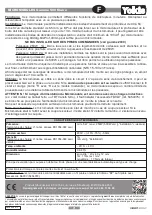
3-50
Overcurrent, Voltage, Synchronism Check, Frequency, and Power Elements
Date Code 20001006
SEL-351 Instruction Manual
In this scenario of the Angle Difference increasing, but still being less than maximum angle
settings 25ANG1 or 25ANG2, the operation of corresponding synchronism check elements
25A1 and 25A2 becomes less restrictive. Synchronism check breaker closing does not have to
wait for voltage V
S
*
to slip around again in-phase with V
P
(Angle Difference = 0
°
). There
might not be enough time to wait for this to happen. Thus, the “Angle Difference = 0
°
”
restriction is eased for this scenario.
3. Refer to
Reclose Supervision Logic
in
Section 6: Close and Reclose Logic
.
Refer to the bottom of Figure 6.2 in
Section 6: Close and Reclose Logic
. If timer 79CLSD
is set greater than zero (e.g., 79CLSD = 60.00 cycles) and it times out without SEL
OGIC
Control Equation setting 79CLS (Reclose Supervision) asserting to logical 1, the relay goes to
the Lockout State (see top of Figure 6.3).
Refer to the top of Figure 6.2 in
Section 6: Close and Reclose Logic
. If timer 79CLSD is set
to zero (79CLSD = 0.00), SEL
OGIC
Control Equation setting 79CLS (Reclose Supervision) is
checked only once to see if it is asserted to logical 1. If it is not asserted to logical 1, the relay
goes to the Lockout State.
Refer to the top of Figure 3.28. Ideally, circuit breaker closing is initiated when V
S
*
is in-
phase with V
P
(Angle Difference = 0
°
). Then when the circuit breaker main contacts finally
close, V
S
is in-phase with V
P
, minimizing system shock. But with time limitations imposed by
timer 79CLSD, this may not be possible. To try to avoid going to the Lockout State, the
following logic is employed:
If 79CLS has not asserted to logical 1 while timer 79CLSD is timing (or timer 79CLSD
is set to zero and only one check of 79CLS is made), the synchronism check logic at the
bottom of Figure 3.27 becomes less restrictive at the “instant” timer 79CLSD is going to
time out (or make the single check). It drops the requirement of waiting until the
decreasing Angle Difference (V
S
*
approaching V
P
) brings V
S
*
in-phase with V
P
(Angle
Difference = 0
°
). Instead, it just checks to see that the Angle Difference is less than angle
settings 25ANG1 or 25ANG2.
If the Angle Difference is less than angle setting 25ANG1 or 25ANG2, then the corre-
sponding Relay Word bit, 25A1 or 25A2, asserts to logical 1 for that “instant” (asserts
for 1/4 cycle).
For example, if SEL
OGIC
Control Equation setting 79CLS (Reclose Supervision) is set as
follows:
79CLS = 25A1 + ...
and the angle difference is less than angle setting 25ANG1 at that “instant,” setting
79CLS asserts to logical 1 for 1/4 cycle, allowing the sealed-in open interval time out to
propagate on to the close logic in Figure 6.1 in
Section 6: Close and Reclose Logic
.
Element 25A2 operates similarly.
Summary of Contents for SEL-351
Page 14: ...Courtesy of NationalSwitchgear com ...
Page 16: ...Courtesy of NationalSwitchgear com ...
Page 40: ...Courtesy of NationalSwitchgear com ...
Page 74: ...Courtesy of NationalSwitchgear com ...
Page 146: ...Courtesy of NationalSwitchgear com ...
Page 186: ...Courtesy of NationalSwitchgear com ...
Page 220: ...Courtesy of NationalSwitchgear com ...
Page 304: ...Courtesy of NationalSwitchgear com ...
Page 340: ...Courtesy of NationalSwitchgear com ...
Page 380: ...Courtesy of NationalSwitchgear com ...
Page 450: ...Courtesy of NationalSwitchgear com ...
Page 506: ...Courtesy of NationalSwitchgear com ...
Page 528: ...Courtesy of NationalSwitchgear com ...
Page 534: ...Courtesy of NationalSwitchgear com ...
Page 536: ...Courtesy of NationalSwitchgear com ...
Page 550: ...Courtesy of NationalSwitchgear com ...
Page 562: ...Courtesy of NationalSwitchgear com ...
Page 570: ...Courtesy of NationalSwitchgear com ...
Page 584: ...Courtesy of NationalSwitchgear com ...
Page 602: ...Courtesy of NationalSwitchgear com ...
















































